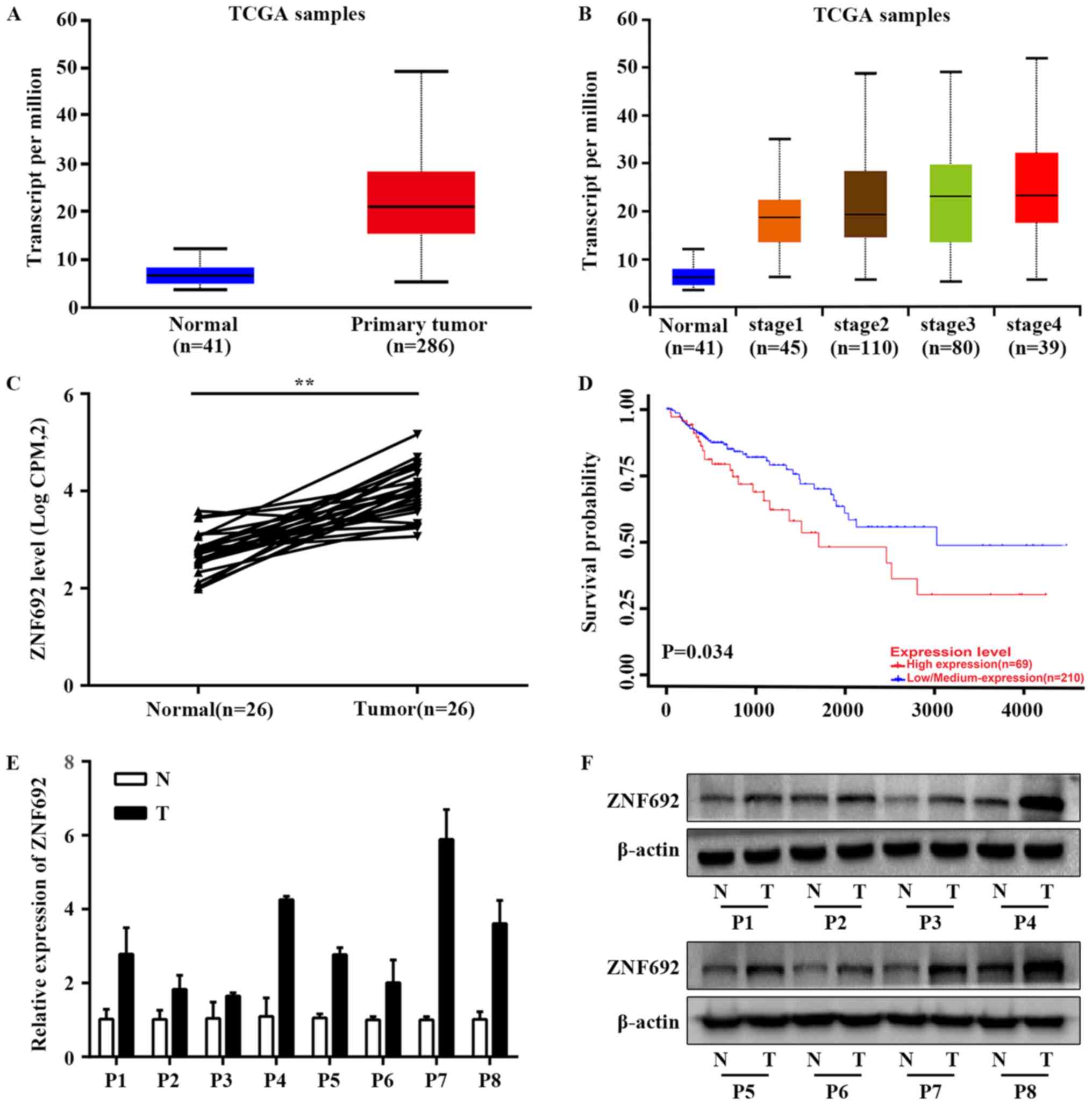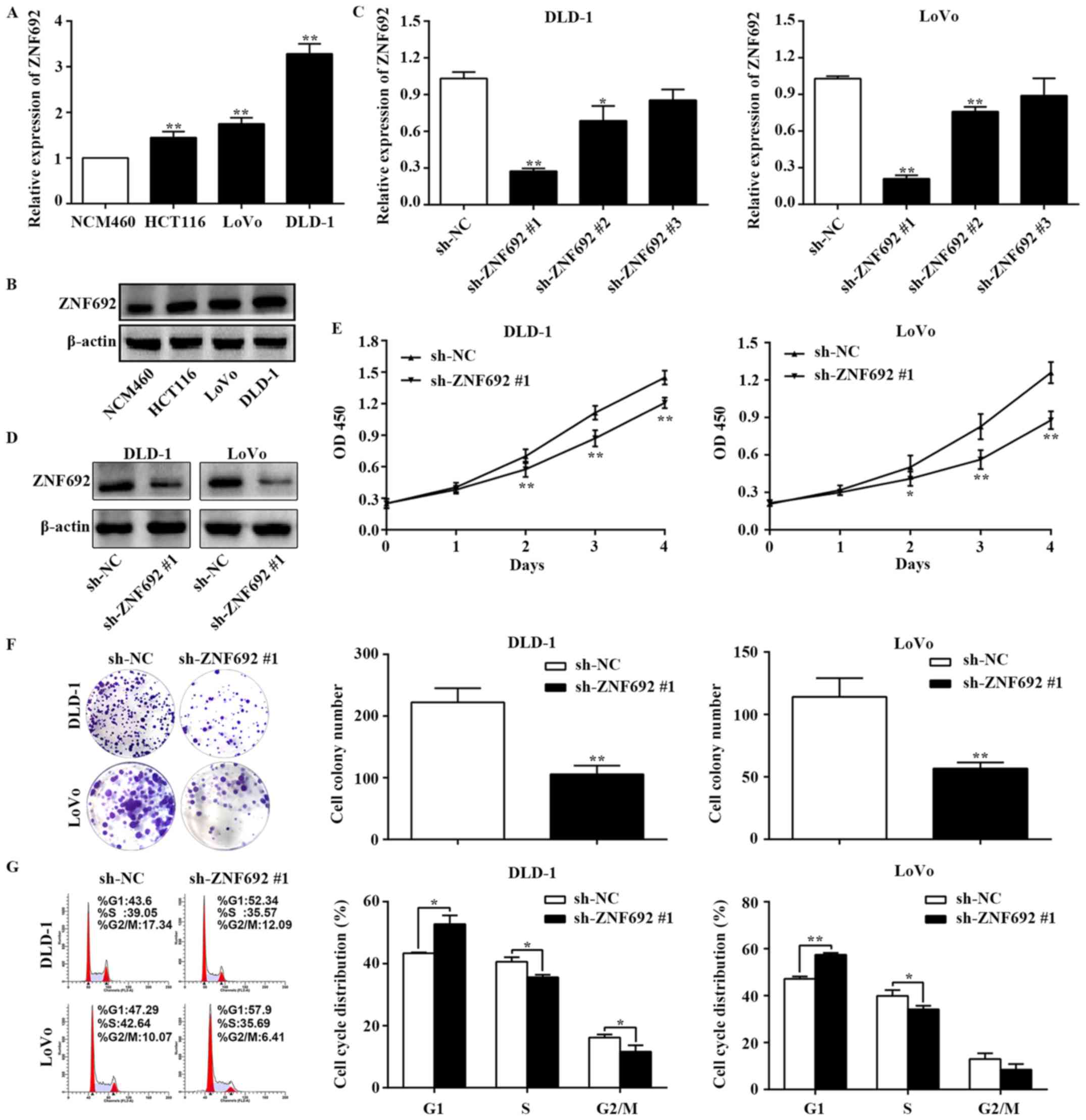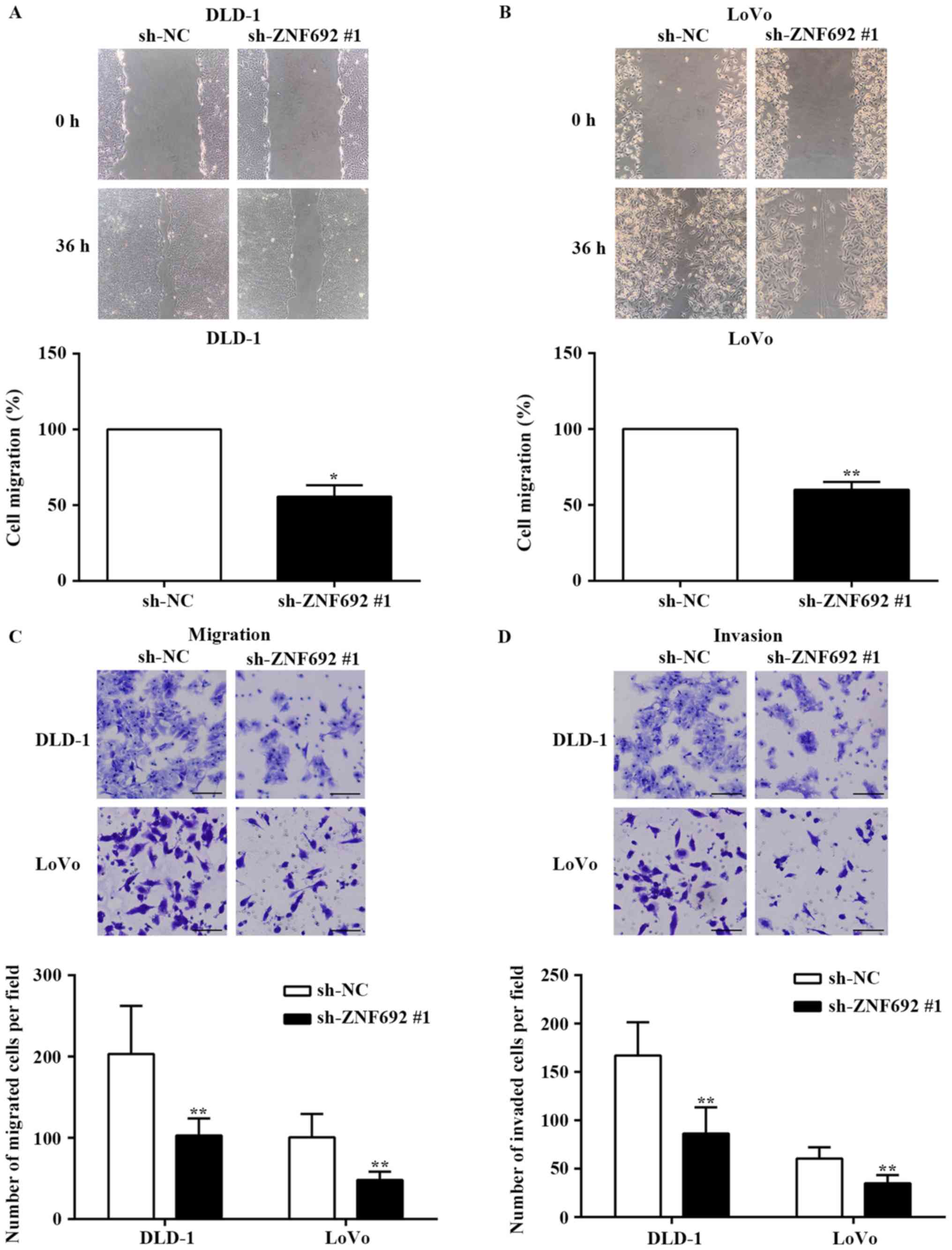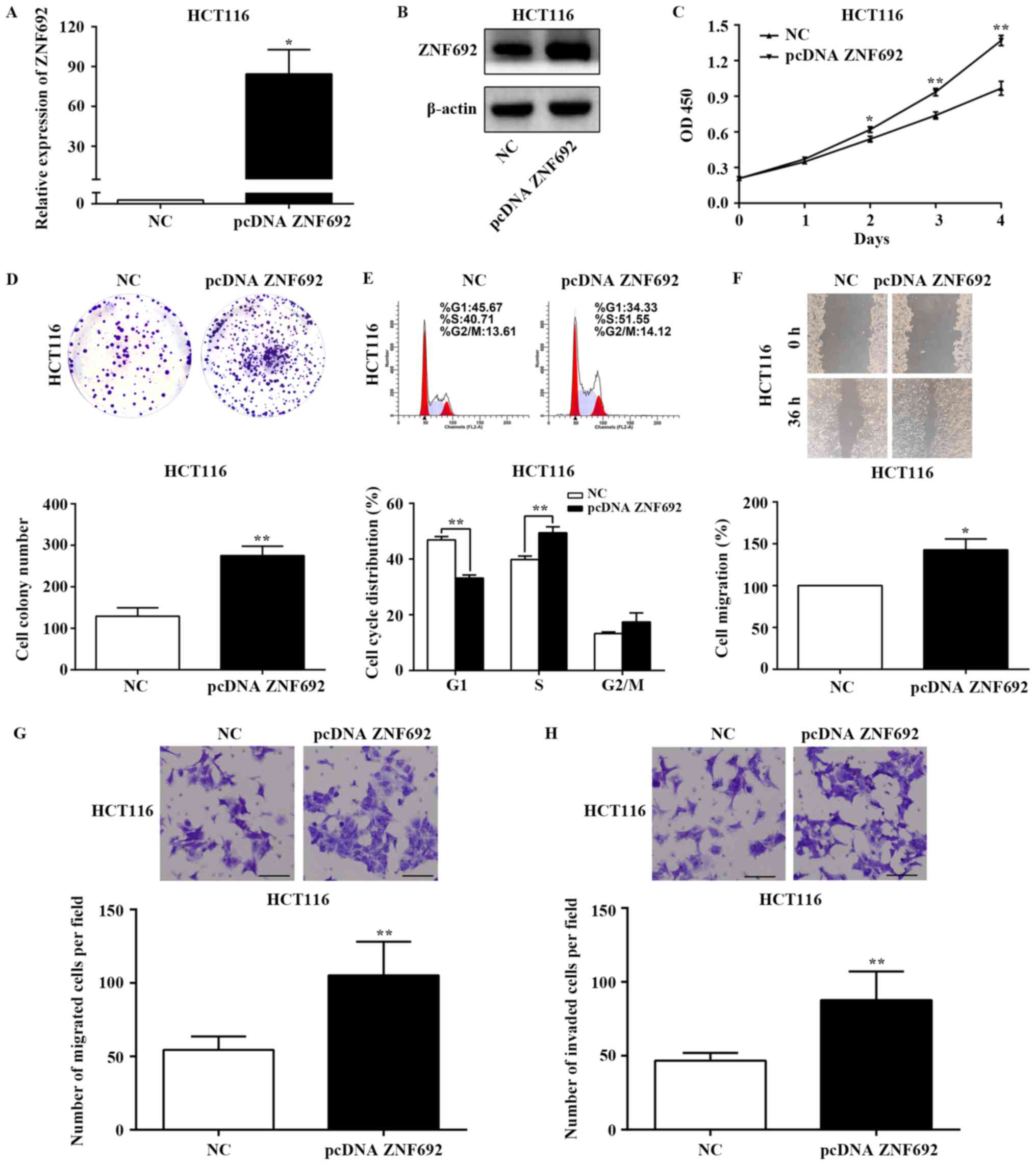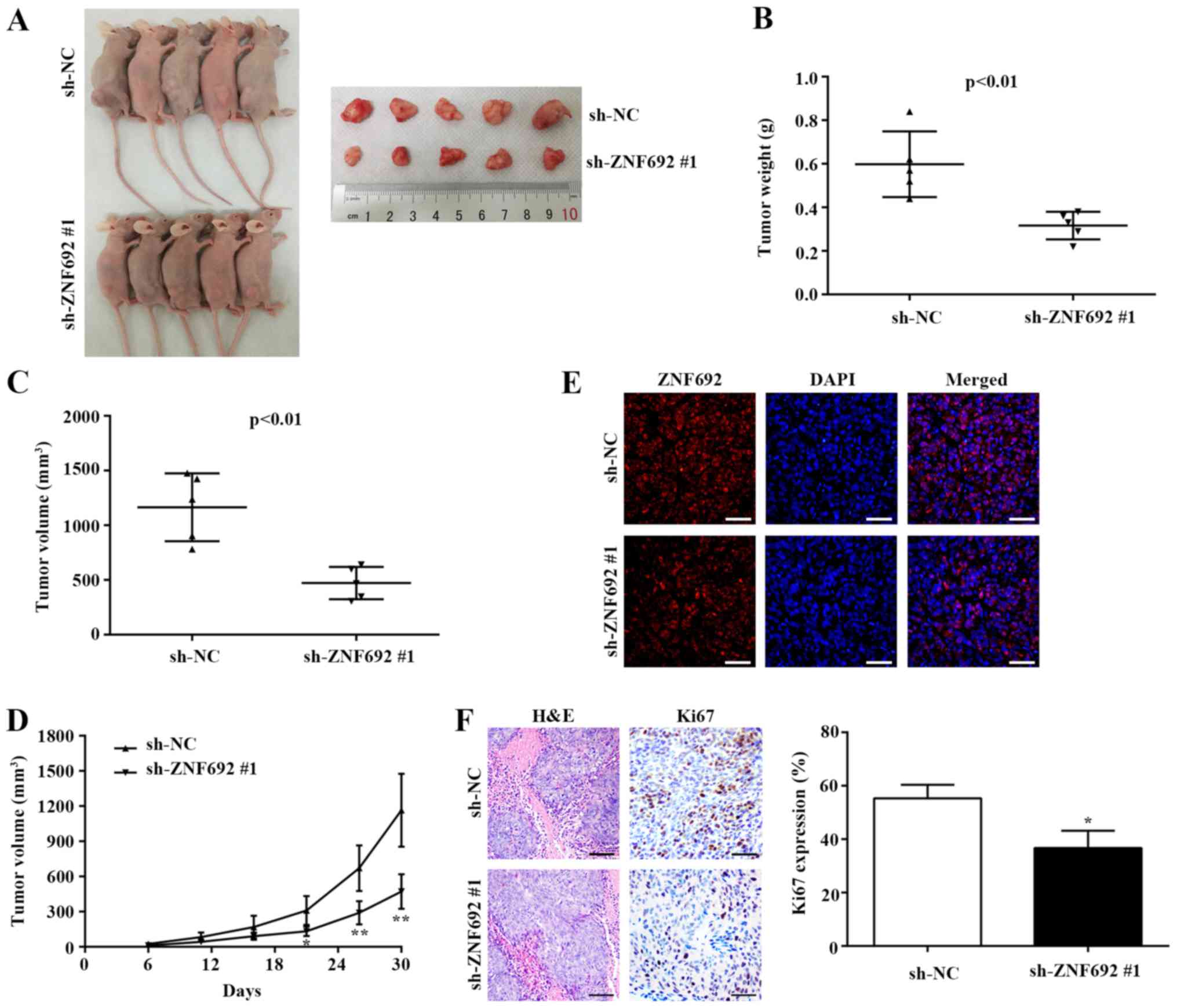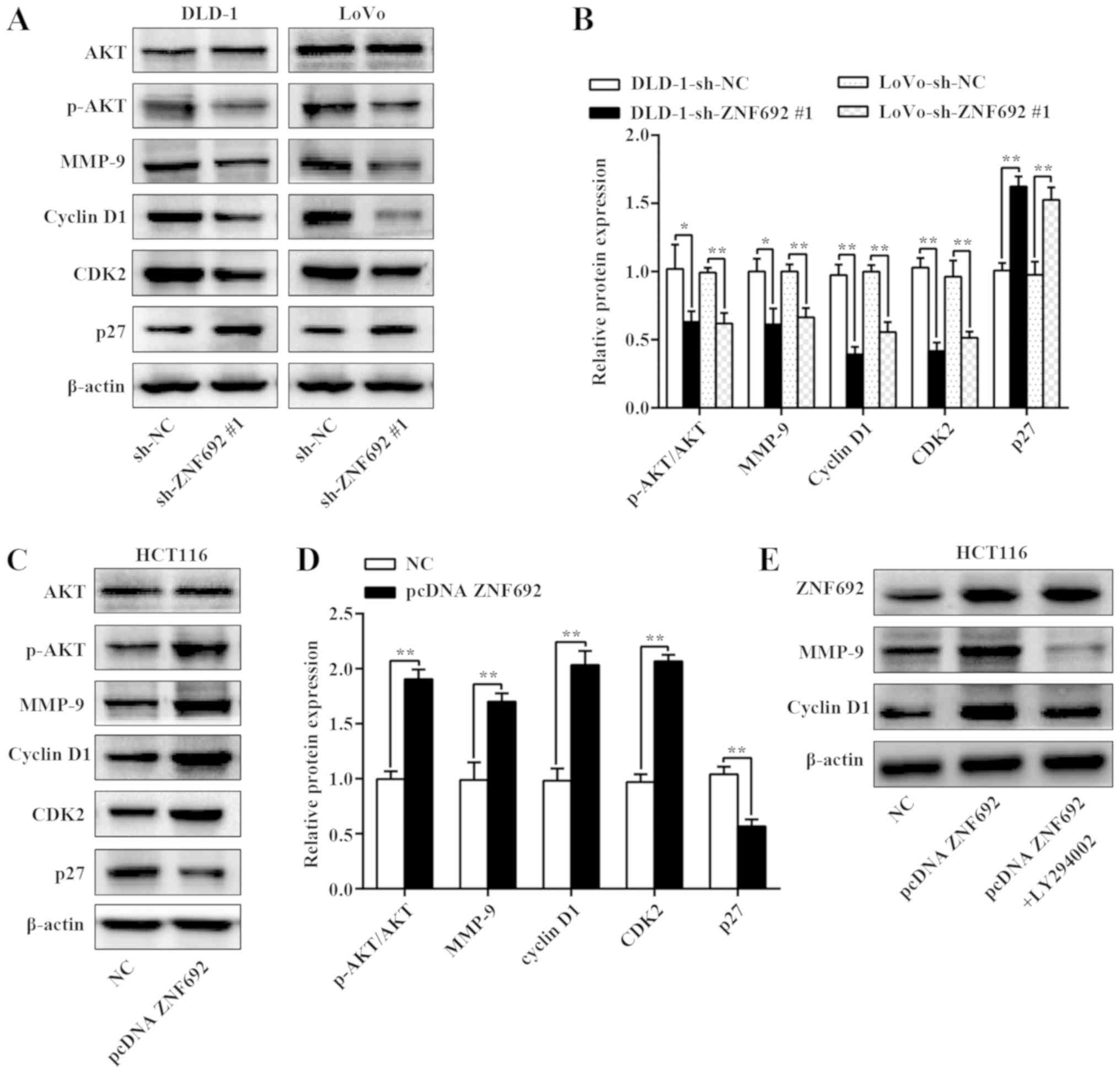|
1
|
Ferlay J, Soerjomataram I, Dikshit R, Eser
S, Mathers C, Rebelo M, Parkin DM, Forman D and Bray F: Cancer
incidence and mortality worldwide: Sources methods and major
patterns in GLOBOCAN 2012. Int J Cancer. 136:E359–E386. 2015.
View Article : Google Scholar
|
|
2
|
Ferlay J, Shin HR, Bray F, Forman D,
Mathers C and Parkin DM: Estimates of worldwide burden of cancer in
2008: GLOBOCAN 2008. Int J Cancer. 127:2893–2917. 2010. View Article : Google Scholar
|
|
3
|
Ahnen DJ, Wade SW, Jones WF, Sifri R,
Mendoza Silveiras J, Greenamyer J, Guiffre S, Axilbund J, Spiegel A
and You YN: The increasing incidence of young-onset colorectal
cancer: A call to action. Mayo Clin Proc. 89:216–224. 2014.
View Article : Google Scholar : PubMed/NCBI
|
|
4
|
Rasool S, Kadla SA, Rasool V and Ganai BA:
A comparative overview of general risk factors associated with the
incidence of colorectal cancer. Tumour Biol. 34:2469–2476. 2013.
View Article : Google Scholar : PubMed/NCBI
|
|
5
|
Ross JS, Torres-Mora J, Wagle N, Jennings
TA and Jones DM: Biomarker-based prediction of response to therapy
for colorectal cancer: Current perspective. Am J Clin Pathol.
134:478–490. 2010. View Article : Google Scholar : PubMed/NCBI
|
|
6
|
Rahmani F, Avan A, Hashemy SI and
Hassanian SM: Role of Wnt/β-catenin signaling regulatory microRNAs
in the pathogenesis of colorectal cancer. J Cell Physiol.
233:811–817. 2018. View Article : Google Scholar
|
|
7
|
Mei ZB, Duan CY, Li CB, Cui L and Ogino S:
Prognostic role of tumor PIK3CA mutation in colorectal cancer: A
systematic review and meta-analysis. Ann Oncol. 27:1836–1848. 2016.
View Article : Google Scholar : PubMed/NCBI
|
|
8
|
Chen H, Xu J, Hong J, Tang R, Zhang X and
Fang JY: Long noncoding RNA profiles identify five distinct
molecular subtypes of colorectal cancer with clinical relevance.
Mol Oncol. 8:1393–1403. 2014. View Article : Google Scholar : PubMed/NCBI
|
|
9
|
Staub E, Gröne J, Mennerich D, Röpcke S,
Klamann I, Hinzmann B, Castanos-Velez E, Mann B, Pilarsky C,
Brümmendorf T, et al: A genome-wide map of aberrantly expressed
chromosomal islands in colorectal cancer. Mol Cancer. 5:372006.
View Article : Google Scholar : PubMed/NCBI
|
|
10
|
Chandrashekar DS, Bashel B, Balasubramanya
SAH, Creighton CJ, Ponce-Rodriguez I, Chakravarthi BVSK and
Varambally S: UALCAN: A portal for facilitating tumor subgroup gene
expression and survival analyses. Neoplasia. 19:649–658. 2017.
View Article : Google Scholar : PubMed/NCBI
|
|
11
|
Xing Y, Zhao Z, Zhu Y, Zhao L, Zhu A and
Piao D: Comprehensive analysis of differential expression profiles
of mRNAs and lncRNAs and identification of a 14-lncRNA prognostic
signature for patients with colon adenocarcinoma. Oncol Rep.
39:2365–2375. 2018.PubMed/NCBI
|
|
12
|
Dahmane N, Lee J, Robins P, Heller P and
Ruiz i Altaba A: Activation of the transcription factor Gli1 and
the Sonic hedgehog signalling pathway in skin tumours. Nature.
389:876–881. 1997. View
Article : Google Scholar
|
|
13
|
Nonet GH, Stampfer MR, Chin K, Gray JW,
Collins CC and Yaswen P: The ZNF217 gene amplified in breast
cancers promotes immortalization of human mammary epithelial cells.
Cancer Res. 61:1250–1254. 2001.PubMed/NCBI
|
|
14
|
Imoto I, Yuki Y, Sonoda I, Ito T, Shimada
Y, Imamura M and Inazawa J: Identification of ZASC1 encoding a
Krüppel-like zinc finger protein as a novel target for 3q26
amplification in esophageal squamous cell carcinomas. Cancer Res.
63:5691–5696. 2003.PubMed/NCBI
|
|
15
|
Jiang R, Wang JC, Sun M, Zhang XY and Wu
H: Zinc finger X-chromosomal protein (ZFX) promotes solid agar
colony growth of osteosarcoma cells. Oncol Res. 20:565–570. 2012.
View Article : Google Scholar
|
|
16
|
Lai KP, Chen J, He M, Ching AK, Lau C, Lai
PB, To KF and Wong N: Overexpression of ZFX confers self-renewal
and chemoresistance properties in hepatocellular carcinoma. Int J
Cancer. 135:1790–1799. 2014. View Article : Google Scholar : PubMed/NCBI
|
|
17
|
Fang X, Huang Z, Zhou W, Wu Q, Sloan AE,
Ouyang G, McLendon RE, Yu JS, Rich JN and Bao S: The zinc finger
transcription factor ZFX is required for maintaining the
tumorigenic potential of glioblastoma stem cells. Stem Cells.
32:2033–2047. 2014. View Article : Google Scholar : PubMed/NCBI
|
|
18
|
Yan X, Shan Z, Yan L, Zhu Q, Liu L, Xu B,
Liu S, Jin Z and Gao Y: High expression of Zinc-finger protein
X-linked promotes tumor growth and predicts a poor outcome for
stage II/III colorectal cancer patients. Oncotarget. 7:19680–19692.
2016. View Article : Google Scholar : PubMed/NCBI
|
|
19
|
Robinson MD, McCarthy DJ and Smyth GK:
edgeR: A Bioconductor package for differential expression analysis
of digital gene expression data. Bioinformatics. 26:139–140. 2010.
View Article : Google Scholar
|
|
20
|
Edge SB and Compton CC: The American Joint
Committee on Cancer: the 7th Edition of the AJCC Cancer Staging
Manual and the Future of TNM. Ann Surg Oncol. 17:1471–1474. 2010.
View Article : Google Scholar : PubMed/NCBI
|
|
21
|
Wang X, Sun D, Tai J, Chen S, Yu M, Ren D
and Wang L: TFAP2C promotes stemness and chemotherapeutic
resistance in colorectal cancer via inactivating hippo signaling
pathway. J Exp Clin Cancer Res. 37:272018. View Article : Google Scholar : PubMed/NCBI
|
|
22
|
Livak KJ and Schmittgen TD: Analysis of
relative gene expression data using real-time quantitative PCR and
the 2(-Delta Delta C(T)). Method Methods. 25:402–408. 2001.
View Article : Google Scholar
|
|
23
|
Inoue E and Yamauchi J: AMP-activated
protein kinase regulates PEPCK gene expression by direct
phosphorylation of a novel zinc finger transcription factor.
Biochem Biophys Res Commun. 351:793–799. 2006. View Article : Google Scholar : PubMed/NCBI
|
|
24
|
Shirai T, Inoue E, Ishimi Y and Yamauchi
J: AICAR response element binding protein (AREBP), a key modulator
of hepatic glucose production regulated by AMPK in vivo. Biochem
Biophys Res Commun. 414:287–291. 2011. View Article : Google Scholar : PubMed/NCBI
|
|
25
|
Blouin JM, Bortoli S, Nacfer M, Collinet
M, Penot G, Laurent-Puig P and Forest C: Down-regulation of the
phosphoenolpyruvate carboxykinase gene in human colon tumors and
induction by omega-3 fatty acids. Biochimie. 92:1772–1777. 2010.
View Article : Google Scholar : PubMed/NCBI
|
|
26
|
Park JW, Kim SC, Kim WK, Hong JP, Kim KH,
Yeo HY, Lee JY, Kim MS, Kim JH, Yang SY, et al: Expression of
phosphoenol-pyruvate carboxykinase linked to chemoradiation
susceptibility of human colon cancer cells. BMC Cancer. 14:1602014.
View Article : Google Scholar
|
|
27
|
Huang CC, Gadd S, Breslow N, Cutcliffe C,
Sredni ST, Helenowski IB, Dome JS, Grundy PE, Green DM, Fritsch MK,
et al: Predicting relapse in favorable histology Wilms tumor using
gene expression analysis: A report from the Renal Tumor Committee
of the Children's Oncology Group. Clin Cancer Res. 15:1770–1778.
2009. View Article : Google Scholar : PubMed/NCBI
|
|
28
|
Zhang Q, Zheng X, Sun Q, Shi R, Wang J,
Zhu B, Xu L, Zhang G and Ren B: ZNF692 promotes proliferation and
cell mobility in lung adenocarcinoma. Biochem Biophys Res Commun.
490:1189–1196. 2017. View Article : Google Scholar : PubMed/NCBI
|
|
29
|
Kaproth-Joslin KA, Li X, Reks SE and
Kelley GG: Phospholipase C delta 1 regulates cell proliferation and
cell-cycle progression from G1- to S-phase by control of cyclin
E-CDK2 activity. Biochem J. 415:439–448. 2008. View Article : Google Scholar : PubMed/NCBI
|
|
30
|
Sherr CJ: Cancer cell cycles. Science.
274:1672–1677. 1996. View Article : Google Scholar : PubMed/NCBI
|
|
31
|
Bansal R, Marin-Husstege M, Bryant M and
Casaccia-Bonnefil P: S-phase entry of oligodendrocyte lineage cells
is associated with increased levels of p21Cip1. J
Neurosci Res. 80:360–368. 2005. View Article : Google Scholar : PubMed/NCBI
|
|
32
|
Graña X and Reddy EP: Cell cycle control
in mammalian cells: Role of cyclins, cyclin dependent kinases
(CDKs), growth suppressor genes and cyclin-dependent kinase
inhibitors (CKIs). Oncogene. 11:211–219. 1995.PubMed/NCBI
|
|
33
|
Bagui TK, Mohapatra S, Haura E and Pledger
WJ: P27Kip1 and p21Cip1 are not required for
the formation of active D cyclin-cdk4 complexes. Mol Cell Biol.
23:7285–7290. 2003. View Article : Google Scholar : PubMed/NCBI
|
|
34
|
Slingerland JM, Hengst L, Pan CH,
Alexander D, Stampfer MR and Reed SI: A novel inhibitor of
cyclin-Cdk activity detected in transforming growth factor
beta-arrested epithelial cells. Mol Cell Biol. 14:3683–3694. 1994.
View Article : Google Scholar : PubMed/NCBI
|
|
35
|
Whitman M, Kaplan DR, Schaffhausen B,
Cantley L and Roberts TM: Association of phosphatidylinositol
kinase activity with polyoma middle-T competent for transformation.
Nature. 315:239–242. 1985. View Article : Google Scholar : PubMed/NCBI
|
|
36
|
Engelman JA, Luo J and Cantley LC: The
evolution of phosphatidylinositol 3-kinases as regulators of growth
and metabolism. Nat Rev Genet. 7:606–619. 2006. View Article : Google Scholar : PubMed/NCBI
|
|
37
|
Wood LD, Parsons DW, Jones S, Lin J,
Sjöblom T, Leary RJ, Shen D, Boca SM, Barber T, Ptak J, et al: The
genomic landscapes of human breast and colorectal cancers. Science.
318:1108–1113. 2007. View Article : Google Scholar : PubMed/NCBI
|
|
38
|
Simpson DR, Mell LK and Cohen EE:
Targeting the PI3K/AKT/mTOR pathway in squamous cell carcinoma of
the head and neck. Oral Oncol. 51:291–298. 2015. View Article : Google Scholar
|
|
39
|
Luo J, Manning BD and Cantley LC:
Targeting the PI3K-Akt pathway in human cancer: Rationale and
promise. Cancer Cell. 4:257–262. 2003. View Article : Google Scholar : PubMed/NCBI
|
|
40
|
Lenferink AE, Busse D, Flanagan WM, Yakes
FM and Arteaga CL: ErbB2/neu kinase modulates cellular
p27(Kip1) and cyclin D1 through multiple signaling
pathways. Cancer Res. 61:6583–6591. 2001.PubMed/NCBI
|
|
41
|
Wierød L, Rosseland CM, Lindeman B,
Oksvold MP, Grøsvik H, Skarpen E and Huitfeldt HS: CDK2 regulation
through PI3K and CDK4 is necessary for cell cycle progression of
primary rat hepatocytes. Cell Prolif. 40:475–487. 2007. View Article : Google Scholar : PubMed/NCBI
|
|
42
|
Wang L, Cao XX, Chen Q, Zhu TF, Zhu HG and
Zheng L: DIXDC1 targets p21 and cyclin D1 via PI3K pathway
activation to promote colon cancer cell proliferation. Cancer Sci.
100:1801–1808. 2009. View Article : Google Scholar : PubMed/NCBI
|
|
43
|
Gupta GP and Massagué J: Cancer
metastasis: Building a framework. Cell. 127:679–695. 2006.
View Article : Google Scholar : PubMed/NCBI
|
|
44
|
Stacker SA, Achen MG, Jussila L, Baldwin
ME and Alitalo K: Metastasis: Lymphangiogenesis and cancer
metastasis. Nature Reviews Cancer. 2:5732002. View Article : Google Scholar
|
|
45
|
Deryugina EI and Quigley JP: Matrix
metalloproteinases and tumor metastasis. Cancer Metastasis Rev.
25:9–34. 2006. View Article : Google Scholar : PubMed/NCBI
|
|
46
|
Rundhaug JE: Matrix metalloproteinases,
angiogenesis, and cancer: commentary re: A. C. Lockhart et al.,
Reduction of wound angiogenesis in patients treated with
BMS-275291, a broad spectrum matrix metalloproteinase inhibitor.
Clin. Cancer Res. 9:00. 2003.
Clin Cancer Res. 9:551–554. 2003.
|
|
47
|
Aparna M, Rao L, Kunhikatta V and
Radhakrishnan R: The role of MMP-2 and MMP-9 as prognostic markers
in the early stages of tongue squamous cell carcinoma. J Oral
Pathol Med. 44:345–352. 2015. View Article : Google Scholar
|
|
48
|
Morgia G, Falsaperla M, Malaponte G,
Madonia M, Indelicato M, Travali S and Mazzarino MC: Matrix
metalloproteinases as diagnostic (MMP-13) and prognostic (MMP-2,
MMP-9) markers of prostate cancer. Urol Res. 33:44–50. 2005.
View Article : Google Scholar
|
|
49
|
Herszényi L, Hritz I, Lakatos G, Varga MZ
and Tulassay Z: The behavior of matrix metalloproteinases and their
inhibitors in colorectal cancer. Int J Mol Sci. 13:13240–13263.
2012. View Article : Google Scholar : PubMed/NCBI
|
|
50
|
Lee CW, Lin CC, Lin WN, Liang KC, Luo SF,
Wu CB, Wang SW and Yang CM: TNF-α induces MMP-9 expression via
activation of Src/EGFR, PDGFR/PI3K/Akt cascade and promotion of
NF-kappaB/p300 binding in human tracheal smooth muscle cells. Am J
Physiol Lung Cell Mol Physiol. 292:L799–L812. 2007. View Article : Google Scholar
|
|
51
|
Yoo YA, Kang MH, Lee HJ, Kim BH, Park JK,
Kim HK, Kim JS and Oh SC: Sonic hedgehog pathway promotes
metastasis and lymphangiogenesis via activation of Akt, EMT, and
MMP-9 pathway in gastric cancer. Cancer Res. 71:7061–7070. 2011.
View Article : Google Scholar : PubMed/NCBI
|















